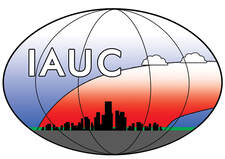
Luke Howard’s Climate of London:
The Work of an Observational Genius
Professor Gerald Mills, University College Dublin,
talk held at Bruce Castle Museum on 26 April 2023
The talk is available on YouTube -
Luke Howard’s Climate of London
Downloadable pdf of the presentation available here
Luke Howard is best known for his work on clouds, which created an international classification that remains in use to this day. What is not as well-known is Howard’s Climate of London, which is one of the first books on climatology and is based on daily observations of temperature, humidity, pressure, and wind made over 25 years at his family home. Moreover, in his analyses of the data in Climate he is the first to detect and measure the urban heat island (UHI) effect, which describes the fact that cities are invariably warmer than the countryside that it replaced.
At the time of this work, London was perhaps the largest city in the world with a population of 1.3 million and the global population was about 1 billion, of which less than 10% lived in cities. Two hundred years later, the global population is over 7 billion and more than 50% live in cities. The impact of humans on climate, which Howard noted for London, is now known to be global in extent and due in large part to urbanisation and the resources that they consume.
In this lecture I will describe Howard’s insights into the climate of cities that still has relevance today in the context of global climate change, heatwaves, and the urban heat island. Much of the modern efforts to improve the urban environment through greening strategies can be traced back to Howard’s Climate. I will pay attention to his genius for finding global truths from careful observations, with and without instruments.
Professor Gerald Mills
UCD and the International Association for Urban Climate
Recipient of the 2021 Luke Howard Award for Outstanding Contributions to the Field of Urban Climatology.
Download the original paper on Luke Howard and the Climate of London by Gerald Mills here
The Work of an Observational Genius
Professor Gerald Mills, University College Dublin,
talk held at Bruce Castle Museum on 26 April 2023
The talk is available on YouTube -
Luke Howard’s Climate of London
Downloadable pdf of the presentation available here
Luke Howard is best known for his work on clouds, which created an international classification that remains in use to this day. What is not as well-known is Howard’s Climate of London, which is one of the first books on climatology and is based on daily observations of temperature, humidity, pressure, and wind made over 25 years at his family home. Moreover, in his analyses of the data in Climate he is the first to detect and measure the urban heat island (UHI) effect, which describes the fact that cities are invariably warmer than the countryside that it replaced.
At the time of this work, London was perhaps the largest city in the world with a population of 1.3 million and the global population was about 1 billion, of which less than 10% lived in cities. Two hundred years later, the global population is over 7 billion and more than 50% live in cities. The impact of humans on climate, which Howard noted for London, is now known to be global in extent and due in large part to urbanisation and the resources that they consume.
In this lecture I will describe Howard’s insights into the climate of cities that still has relevance today in the context of global climate change, heatwaves, and the urban heat island. Much of the modern efforts to improve the urban environment through greening strategies can be traced back to Howard’s Climate. I will pay attention to his genius for finding global truths from careful observations, with and without instruments.
Professor Gerald Mills
UCD and the International Association for Urban Climate
Recipient of the 2021 Luke Howard Award for Outstanding Contributions to the Field of Urban Climatology.
Download the original paper on Luke Howard and the Climate of London by Gerald Mills here


